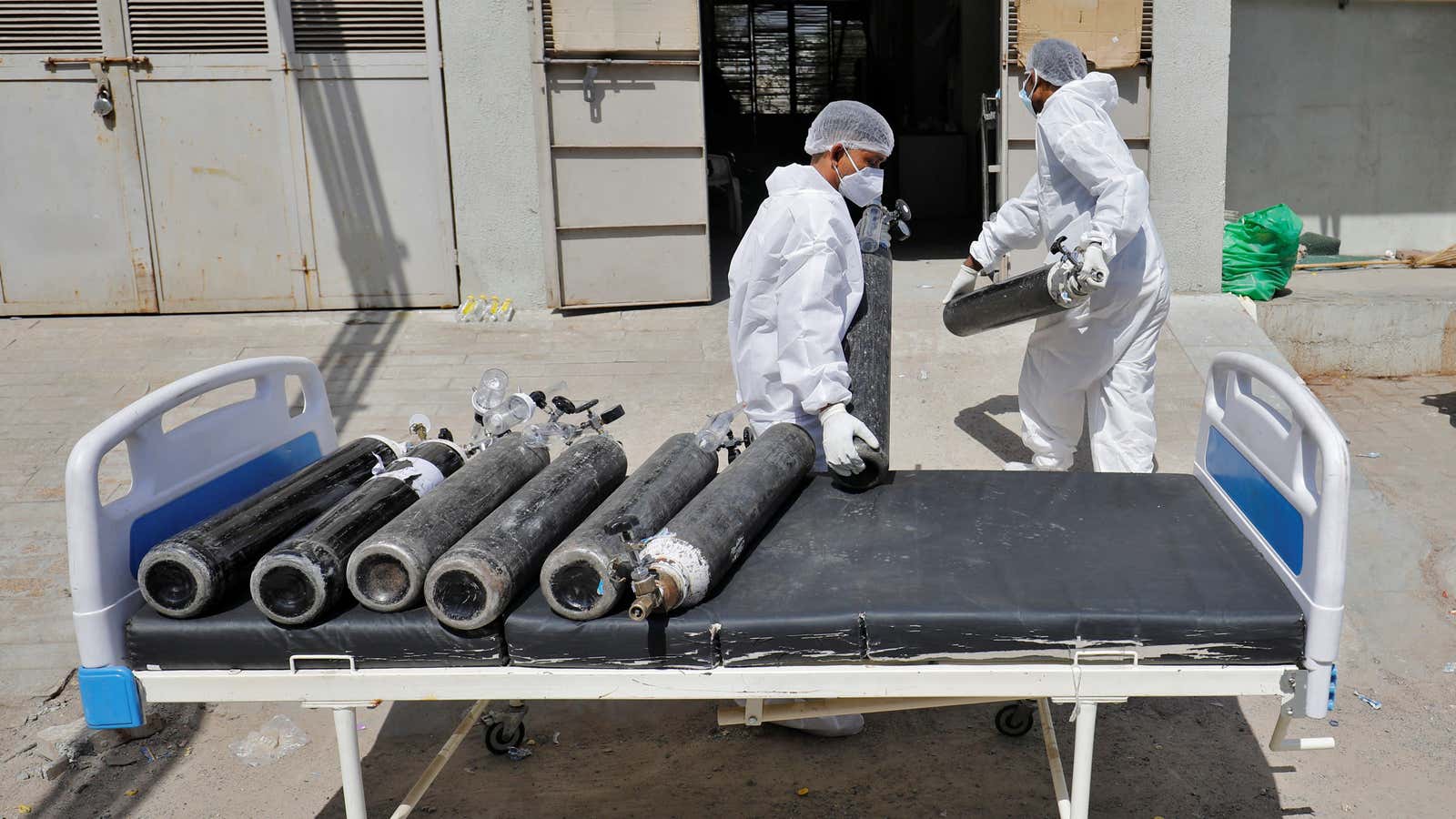It was a tweet from India’s largest vaccine manufacturer that made the US a stakeholder in India’s fight against the brutal second wave of Covid-19.
On April 16, Serum Institute of India CEO Adar Poonawalla tweeted to US president Joe Biden about the latter’s embargo on exporting vaccine raw materials.
He didn’t specify what these raw materials were, nor did he say if these were meant for the production of Covishield, the AstraZeneca vaccine his company is manufacturing in India. Poonawalla later clarified in an interview with CNBC-TV18 that these curbs from the US do not impact the production of Covishield.
Yet, as India’s daily Covid-19 cases and deaths surpassed milestone after grim milestone, the focus among Indians and the Indian diaspora shifted to the Biden administration’s silence on aid to India.
While the US has now changed its stance and offered to ease the embargo on raw materials, and has also promised aid in the form of PPE kits and therapeutics, the clamor for aid from the US is both peculiar and important.
Peculiar because the desperation and exasperation of Indian citizens from the Narendra Modi government are so dire that they now believe that only foreign aid can come to their rescue.
Important because, as diplomacy commentators observe, the US’s relationship with India has much significance for Asia and the world, especially in controlling the devastation caused by Covid-19. India is the fourth partner of the Quad alliance between the US, Japan, and Australia. It is also a long-time ally and trade partner of the US.
“It’s disappointing because at the end of the day, the US, the world’s sole superpower and a country that has finally turned the corner on the pandemic, has a moral obligation to help India,” Michael Kugelman, deputy director of the Asia programme and senior associate for south Asia at the Wilson Center, told Quartz. “That’s the essence of the issue here: Forget about strategic calculations. This is about humanity, pure and simple.”
From the Biden administration’s foreign policy perspective, too, this goes against the spirit of rebuilding ties that were broken under the Donald Trump administration. “Another reason why the administration’s slow response is disappointing is that the Biden White House has vowed to restore alliances, multilateralism, and above all global US leadership. One would expect it, then, to mobilise not only its own support but also that of other countries, and lead a concerted effort to bring assistance to the world’s second-most populous country,” Kugelman added.
And this isn’t just about the raw materials for vaccines, either.
Sharing the vaccine surplus
The US, which was till January the worst Covid-hit country in the world, has also been able to vaccinate a significant proportion of its population. Commentators believe the country has stockpiles of the tens of millions of AstraZeneca vaccine doses that it would never use, which it can share with India in this time of crisis.
Biden was asked about this during a press conference on April 24, and he responded that American interests would need to first be assessed before vaccine aid can be offered. In March, Biden had said that once all Americans are vaccinated, he would share the surplus with the world.
Winston Center’s Kugelman also believes that there is a fair degree of caution within the White House. “The administration knows how unpredictable and volatile the pandemic can be, and it doesn’t want to make the mistake of sending supplies abroad and then seeing another dramatic surge. In other words, the administration may want to hold off on quickly exporting supplies as a hedge against the possibility of another health emergency later on,” he said.
But that is still not reason enough for the US’s reticence in offering aid, especially given that India now contributes to nearly 40% of new Covid-19 infections in the world. “There need to be more statements of support. The US Embassy and consulates in India should provide active messaging as well. And ideally, there should be a call between Biden and Modi,” Kugelman said.
With respect to sending out the right message, US national security advisor Jake Sullivan’s call with his Indian counterpart Ajit Doval is the first step in that direction, even if it comes with a delay that left much of the world wondering.
